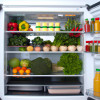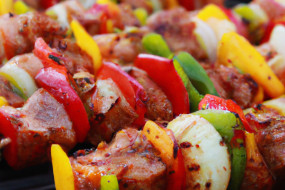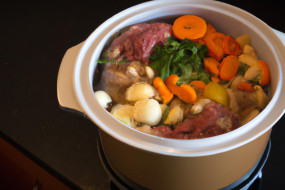
Food waste is a growing problem globally, with billions of tons of food wasted each year. Not only is this bad for the environment, but it’s also a waste of money for households. In this article, we outline 13 simple ways to reduce food waste at home.
1. Plan your meals and make a grocery list
Planning your meals for the week ahead and making a grocery list can help you avoid buying more food than you need. It can also help you buy only what you need and reduce the chances of food going bad in your fridge.
2. Keep your fridge organized
A well-organized fridge can help you keep track of what you have and what needs to be used up soon. Keep older items at the front of the fridge so they get used first, and keep similar items together.
3. Learn to cook with leftovers
Turn your leftovers into new meals by getting creative in the kitchen. For example, leftover vegetables can be added to soups or stews, and leftover meat can be used in sandwiches or salads.
4. Freeze food before it goes bad
If you have food that’s about to expire, consider freezing it for later use. You can freeze fruits, vegetables, bread, and even dairy products like milk and cheese.
5. Measure portions when cooking
Many people cook more than they need, which can lead to leftover food that eventually goes bad. Try measuring your portions when cooking to ensure you make just enough for you and your family.
6. Use up ingredients before they expire
When you buy food, pay attention to the expiration dates and use up ingredients before they go bad. For example, if you buy a tub of sour cream, have a plan to use it up before it expires.
7. Share food with friends and neighbors
If you have extra food that you’re not going to use, consider sharing it with friends or neighbors. This can help reduce food waste and build community at the same time.
8. Store food properly
Many foods need to be stored in certain conditions to last longer. For example, potatoes should be stored in a cool, dark place, while onions should be stored in a dry, ventilated area.
9. Use up scraps in soups or broths
Save vegetable scraps and bones from meat to make homemade soups or broths. This is a great way to use up food scraps and make delicious meals at the same time.
10. Donate food to a local food bank
If you have non-perishable food items that you’re not going to use, consider donating them to a local food bank. This can help reduce food waste and help those in need.
11. Use a compost bin
Composting is a great way to turn food waste into nutrient-rich soil for your garden. You can compost fruit and vegetable scraps, coffee grounds, and even eggshells.
12. Cut down on food packaging
Many foods come in excess packaging, which creates unnecessary waste. When possible, buy foods in bulk or choose items with minimal packaging.
13. Educate yourself
Take the time to learn more about food waste and what you can do to reduce it. The more you know, the more you can make a positive impact on the environment and your wallet.
















